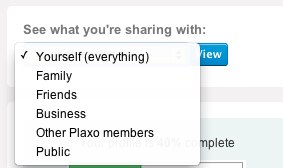I’m happy to announce I’m collaborating with my Macquarium colleague, Patrick Quattlebaum, and Happy Cog Philadelphia’s inimitable Kevin Hoffman on presenting an all-day pre-conference workshop for this year’s Information Architecture Summit, in Denver, CO. See more about it (and register to attend!) on the IA Summit site.
One of the things I’ve been fascinated with lately is how important it is to have an explicit understanding of the organizational and personal context not only of your users but of your own corporate environment, whether it’s your client’s or your own as an internal employee. When engaging over a project, having an understanding of motivations, power structures, systemic incentives and the rest of the mechanisms that make an organization run is immeasurably helpful to knowing how to go about planning and executing that engagement.
It turns out, we have excellent tools at our disposal for understanding the client: UX design methods like contextual inquiry, interviews, collaborative analysis interpretation, personas/scenarios, and the like; all these methods are just as useful for getting the context of the engagement as they are for getting the context of the user base.
Additionally, there are general rules of thumb that tend to be true in most organizations, such as how process starts out as a tool, but calcifies into unnecessary constraint, or how middle management tends to work in a reactive mode, afraid to clarify or question the often-vague direction of their superiors. Not to mention tips on how to introduce UX practice into traditional company hierarchies and workflows.
It’s also fascinating to me how understanding individuals is so interdependent with understanding the organization itself, and vice-versa. The ongoing explosion of new knowledge in social psychology and neuroscience is giving us a lot of insight into what really motivates people, how and why they make their decisions, and the rest. These are among the topics Patrick & I will be covering during our portion of the workshop.
As the glue between the individual, the organization and the work, there are meetings. So half the workshop, led by Kevin Hoffman, will focus specifically on designing the meeting experience. It’s in meetings, after all, where the all parties have to come to terms with their context in the organizational dynamics — so Kevin’s techniques for increasing not just the efficiency of meetings but the human & interpersonal growth that can happen in them, will be invaluable. Kevin’s been honing this material for a while now, to rave reviews, and it will be a treat.
I’m really looking forward to the workshop; partly because, as in the past, I’m sure to learn as much or more from the attendees as they learn from the workshop presenters.



